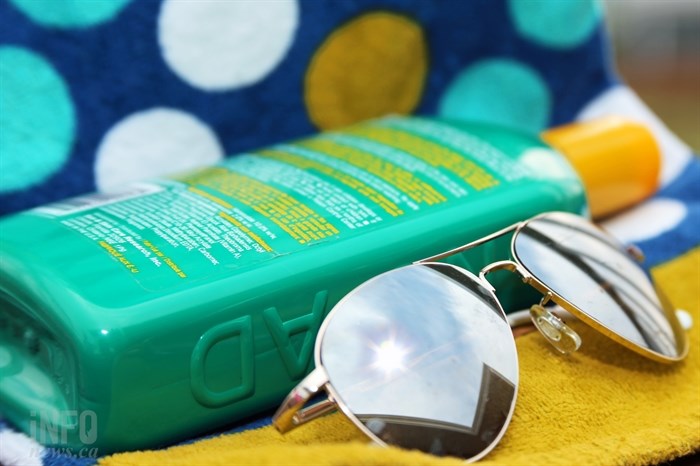
(JENNIFER STAHN / iNFOnews.ca)
July 19, 2024 - 12:02 PM
It's hot outside, really hot.
But there are ways you can help to protect yourself and your family from the impacts of the prolonged heat wave in the southern Interior.
Environment Canada has continued heat warnings for the region and while a heat emergency hasn't been declared by the province, it's still hot enough to effect people's health.
The BC Centre for Disease Control and Interior Health have provided an extensive list of resources to help the public beat the heat and avoid heat related illness like heat stroke.
Health officials say it's important to keep an eye on indoor temperatures and take precautions when outside.
First up, if you have air conditioning at home, make sure it is in good working order.
But if you don't have an air conditioned home here are some tips to stay cool:
-
Find somewhere you can cool off on hot days. Consider places in your community to spend time indoors such as libraries, community centres, movie theatres or malls. Also, as temperatures may be hotter inside than outside, consider outdoor spaces with lots of shade and running water.
-
Close windows, curtains and blinds during the heat of the day to block the sun and prevent hotter outdoor air from coming inside. Open doors and windows when it is cooler outside to move that cooler air indoors.
-
Ensure that you have a working fan, but do not rely on fans as your primary means of cooling. Fans can be used to draw cooler late-evening, overnight and early-morning air indoors.
-
Keep track of temperatures in your home using a thermostat or thermometer. Sustained indoor temperatures over 31 C can be dangerous for people who are susceptible to heat.
-
If your home gets very hot, consider staying with a friend or relative who has air conditioning, if possible.
-
Identify people who may be at high risk for heat-related illness. If possible, help them prepare for heat and plan to check in on them.
Interior Health said it's important to monitor yourself, family members, neighbours and friends. You might even want to consider a check-in system.
Those at higher risk are older adults, people with mental illnesses such as depression, schizophrenia or anxiety, substance use disorders and pre-existing health conditions. People who are pregnant, have limited mobility, work in hot environments and infants and young children are also at higher risk of heat related illnesses.
Here's a list of ways Interior Health suggest to keep yourself safe during the prolonged heat.
-
Drink plenty of water and other liquids to stay hydrated, even if you are not thirsty.
-
Spray your body with water, wear a damp shirt, take a cool shower or bath or sit with part of your body in water to cool down.
-
Take it easy, especially during the hottest hours of the day.
-
When outside, stay in the shade and use a broad-spectrum sunscreen with SPF 30 or higher.
-
Take immediate action to cool down if you are overheating. Signs of overheating include feeling unwell, headache and dizziness. Overheating can lead to heat exhaustion and heat stroke.
-
Signs of heat exhaustion include heavy sweating, severe headache, muscle cramps, extreme thirst and dark urine. If you are experiencing these symptoms, you should immediately seek a cooler environment, drink plenty of water, rest, use water to cool your body and monitor your symptoms.
-
Signs of heat stroke include loss of consciousness, disorientation, confusion, severe nausea or vomiting and very dark urine or no urine. Heat stroke is a medical emergency – call 911.
For more information, there are plenty of online resources: Preparing for Heat Events, EmergencyInfoBC, HealthLinkBC and Extreme Heat Preparedness Guide.
To contact a reporter for this story, email Bailey Zimmer or call 250-808-0143 or email the editor. You can also submit photos, videos or news tips to the newsroom and be entered to win a monthly prize draw.
We welcome your comments and opinions on our stories but play nice. We won't censor or delete comments unless they contain off-topic statements or links, unnecessary vulgarity, false facts, spam or obviously fake profiles. If you have any concerns about what you see in comments, email the editor in the link above. SUBSCRIBE to our awesome newsletter here.
News from © iNFOnews, 2024